
9 minute read
triBeCa 2023
from Summer 2023
After 12 days filled with film and television screenings, pioneering immersive and virtual reality experiences, momentous reunions and talks, concerts, and game debuts the 2018 Tribeca Film Festival, presented by AT&T, announced an estimated attendance of more than 140,000 people to 564 screenings and Talks, the Virtual Arcade and Tribeca Cinema360, and games with an additional 1,850,000 people participating in 11 talks from afar via Facebook Live. [Note: This is on par with last year’s attendance based on capacity as many of the theaters being used in 2018 had seats reconfigured resulting in less total seating capacity]
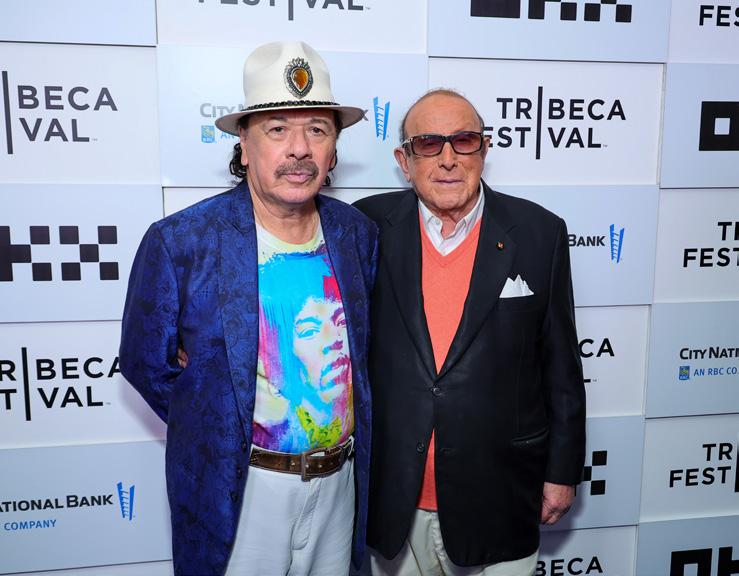
Advertisement
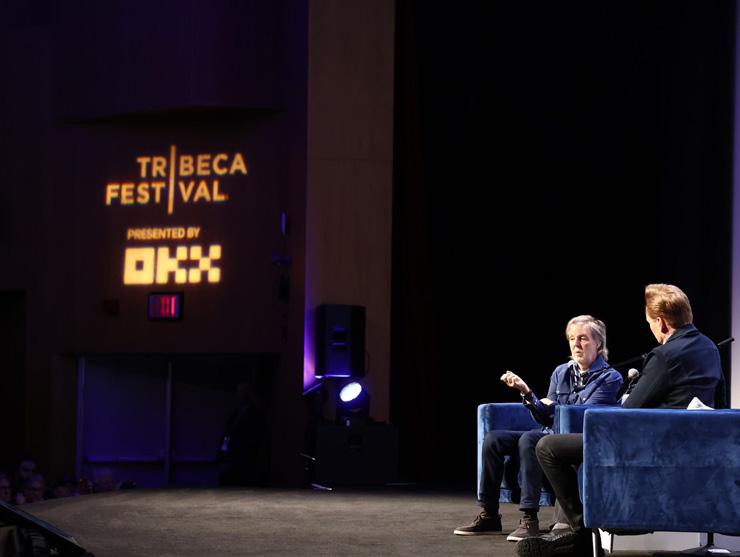
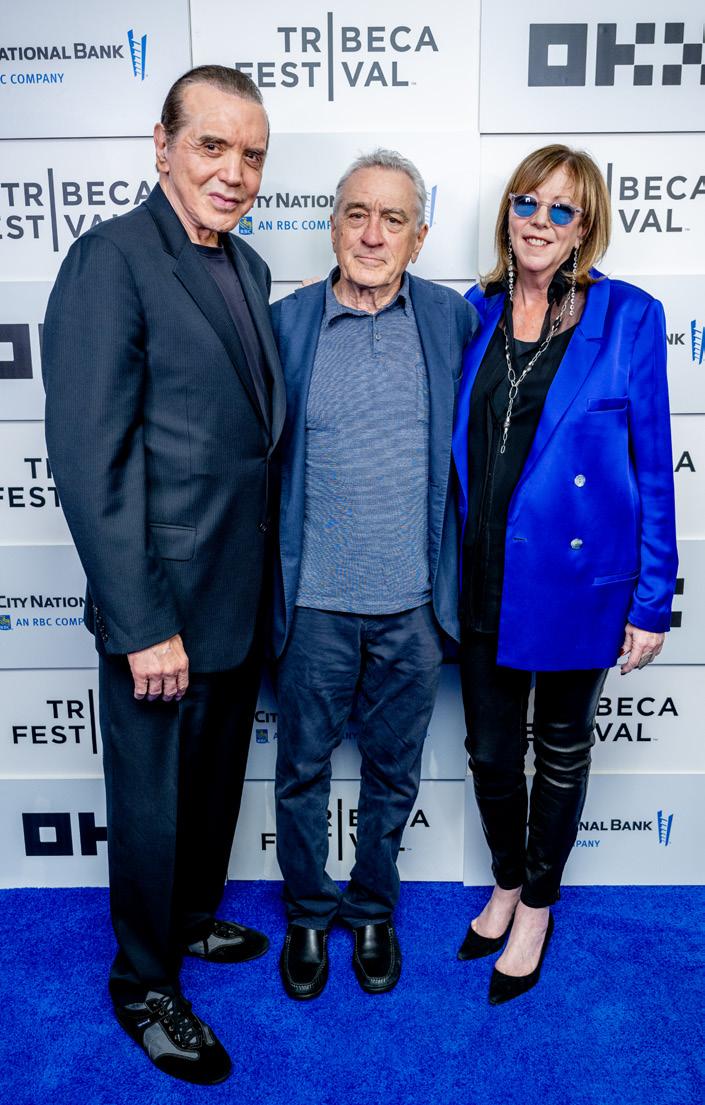
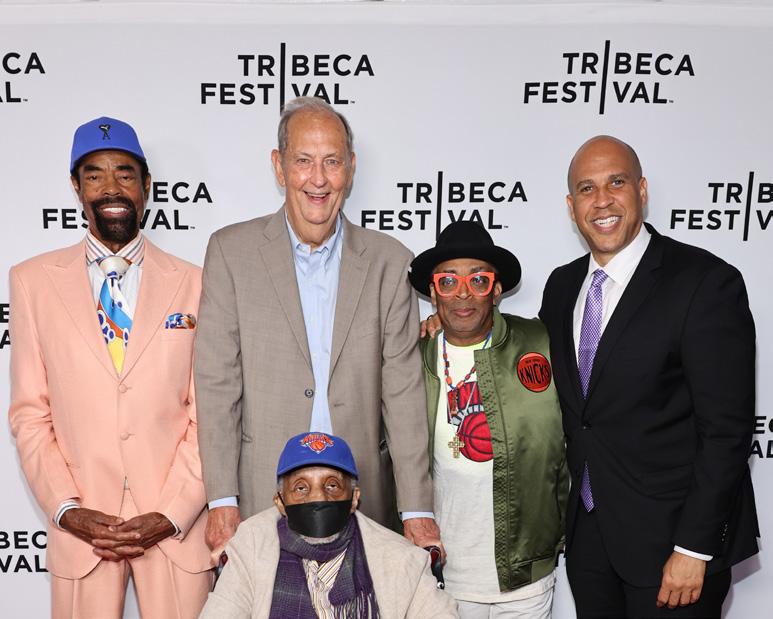
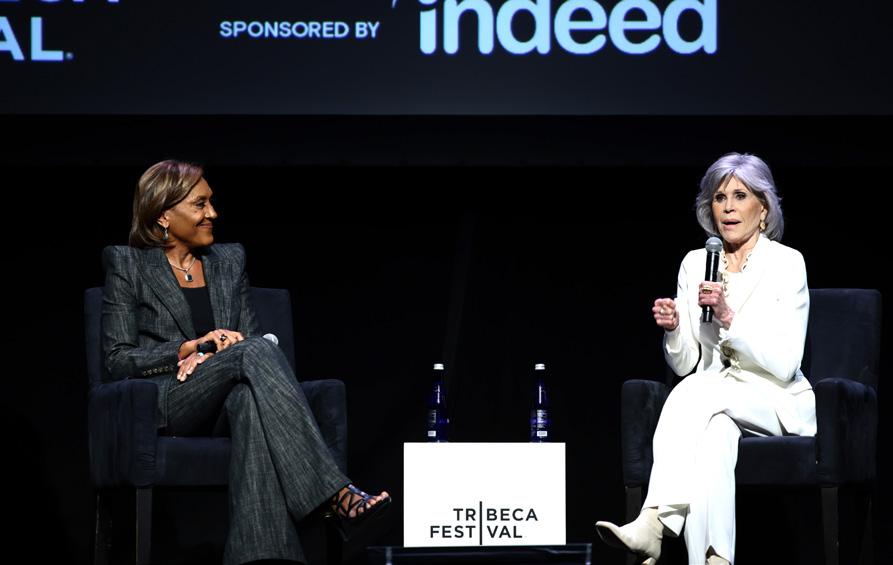
From April 18 - April 29, the Festival presented 99 features, 55 short films, 35 immersive storytelling projects, 20 television projects, and 12 N.O.W. (New Online Work) projects representing 46 countries. Tribeca hosted 34 Tribeca Talks, including Tribeca Talks: TIME’S UP - A Day of Conversation and Action.
This year, 46% of the feature films were directed by women, the highest percentage in the Festival’s history.
Andre’s Testament
Mr. Talley shares insight into the making of his hit documentary
Andre Leon Talley has been a style icon since he was born. The documentary we wanted to see most The Gospel According To Andre was screened during Tribeca 2018. Known for his candor, style and personality - we finally get to see the documentary we knew we needed. The Gospel According to Andre show us Mr. Talley’s early life, his journey to becoming a dynamic force in fashion as an African American man and more. Here is the conversation about the film, which is in theaters now.
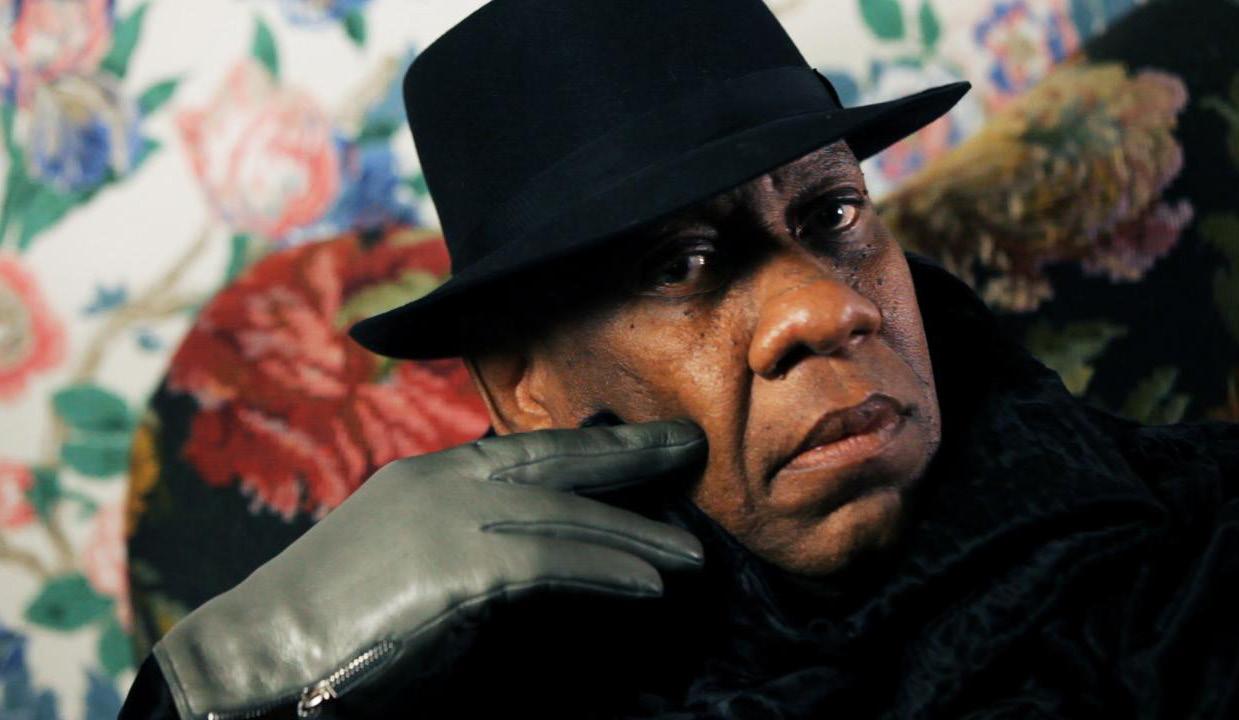
When Kate first approached you about the documentary, how did she explain what she wanted to do?
Well, first, Kate and I met through Vogue—first they went through Vogue, because had been interviewed by Andrew for The First Monday in May, and I had been the sort of ambassador for that film at a few screenings. So it was through the auspices of Vogue that Kate came to me with Andrew. loved The First Monday in May, and so felt it was the perfect fit. If Kate had not come through Vogue, I might not have said ‘yes’ so quickly,and I don’t regret that I said yes.
Did you have any idea of what to expect from the experience?
No. I did not have any idea about what to expect from the experience, and it was a rough going at first. It’s very intrusive, it’s like you are exposed, like chest surgery. It’s like you open the cavity of your chest and you expose yourself on a surgical table. had no idea what it was going to be. I just trusted Kate enough and became very trusting of her, and her trajectory, her sophisticated research, and respect of my story, of my life. She delved into the past enough to impress me to continue to go through with it.
You’re someone who has spent a great deal of time on camera, but being in a documentary is not the same thing.
It’s not the same. I’ve opened my heart and my soul and my life. And I am a very private and shy person, although I come off as a very flamboyant person. I use clothes as armor, clothes are my security blanket and my clothes and outfits my armor against the world of the chiffon trenches. So the documentary has been a very enriching experience. think it’s a very sensitive and extraordinary and yet elegant story of my life, as told by Kate, but it was very, very brutal for me to continue to go through all the machinations and all the sit-down talks and everything. It’s totally different from being on a talk-show or panel or being interviewed by Charlie Rose on PBS with Karl Lagerfeld. It’s all very different it’s very, very challenging and overwhelming, but think that it’s a document she wanted to do, a story she wanted to tell and I’m glad that I did it.
What was it like the first time you saw the film?
Oh, the first time that I saw it, I was just elated to be there with friends, to see some of the glorious images and see the way Kate threaded the narratives through the sophisticated research she had done. Her research is phenomenal!
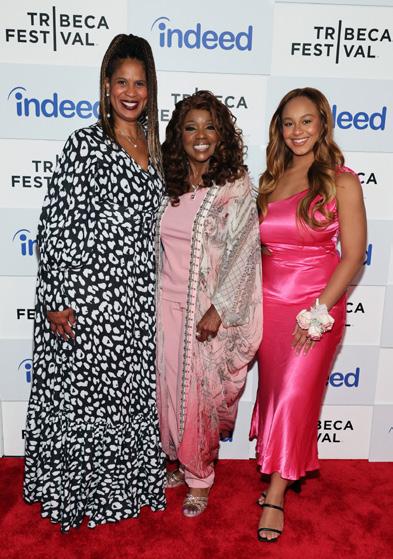
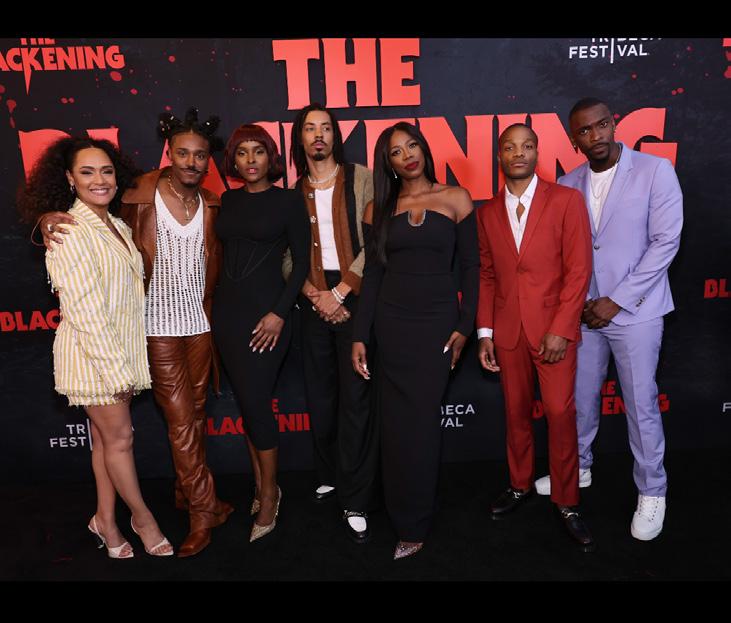
She had gone back and researched, contextually, my life story from its humble beginnings all the way to Brown [University], my theses and reviews from when I went to Paris and the great shows of Yves Saint Laurent in 1978. That was very wonderful for me; it was an enchantment, but, at the same time, an experience that I would consider—I’m not a vain person—microscopic. A documentary is meant to be truthful and it is Kate’s story, it is definitely 8 her story, but, being creative in my life, and an editor, I would have, in hindsight, made a contract have a full make-up artist on hand at all times! Having come from the world Vogue, part of the armor is that you are professionally groomed and, on a cold, bitter morning in North Carolina, that was just me coming out and I...would had a makeup artist.
The film does dig amazingly deep. But it never tries to pigeonhole what it is actually do. I wonder how you describe your career.
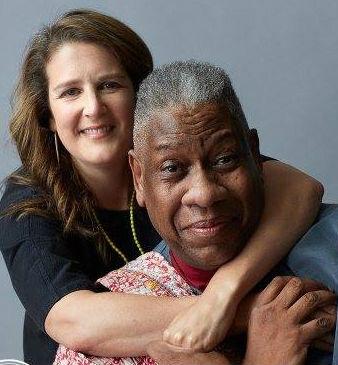
I started following Street Art out of personal interest. In my youth years most of my friends used to cover their faces to evade CCTV cameras and jumped on walls to paint on a train, knowing they would only see their artwork in the light of day once – as the train ran by the next morning –before it was erased.
This is what always fascinated me: the fact that it’s an ephemeral kind of art, born out of poor materials and indissolubly bound to the action that originates it. It is also the only recognised artistic movement that is completely illegal and therefore destined to disappear.
The original idea of the fim came after a chance meeting with Walid, the body-building Palestinian taxi driver who was my very fist encounter once I passed the Bethlehem check point. Walid was part of a group of people who stole a whole house wall with a Banksy painted on it and proceeded to sell it on Ebay.
This accidental meeting introduced me to a theme that soon after would develop, with varying and fascinating implications, throughout the rest of the world. As I began my research, I realised how that same issue can be interpreted in very different ways, and how its ethical justifiations and explanations can vary drastically from country to country, depending on cultural and economic priorities.
What I found most interesting is the way the art establishment tries to desperately fi street art within its categories (thus making it portable, and sellable, even if it’s on four tons of concrete). As went through the footage I gathered, sometimes I could almost feel the wheels of the mainstream grinding to a halt. Trying, and failing, to metabolise something completely foreign. Completely new.
The fim tackles themes of copyright (Does the artwork belong to the artist or to the public? Can the traditional laws of the market apply when no street artist has, or indeed can have without facing legal prosecution, a canon?), of safeguarding the art itself (Should it be allowed to disappear, as the artist intended? Does it mean the same if removed from its chosen context?) and of what will be left of this artistic revolution once the dust settles.
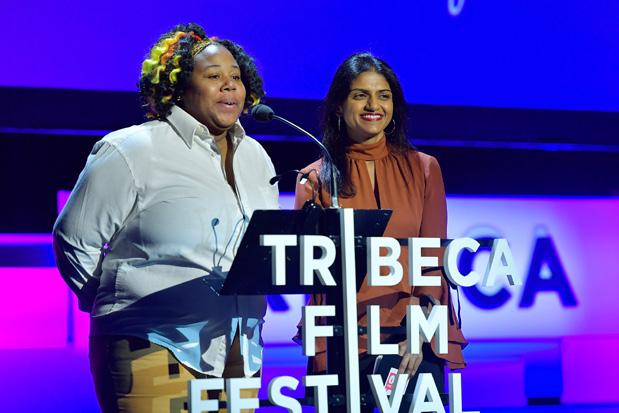
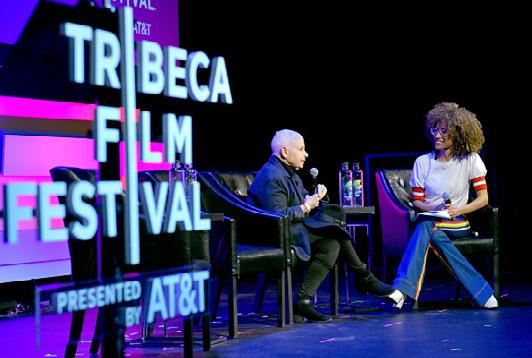
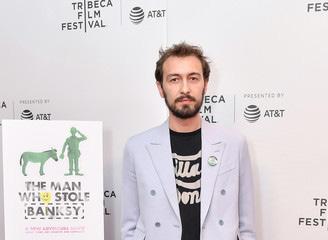
“The Man Who Stole Banksy” is a multi-format documentary mixing last generation HD cameras along with some inserts shot on mini-dv cameras, recorded at the time of the removal, archive photos and gfx. The documentary also mixes traditional Middle East sounds with modern electronic music and dub, underlining the clash between different cultures.
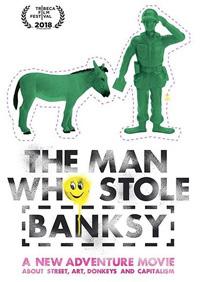
Tribeca collaborated with TIME’S UP to host the Day of Conversation and Action, which featured conversations with a range of women who are playing a pivotal role in raising awareness about inequality in the workplace. Activists, storytellers, business leaders, filmmakers, lawyers, media figures, and more shared their stories. Highlights included:
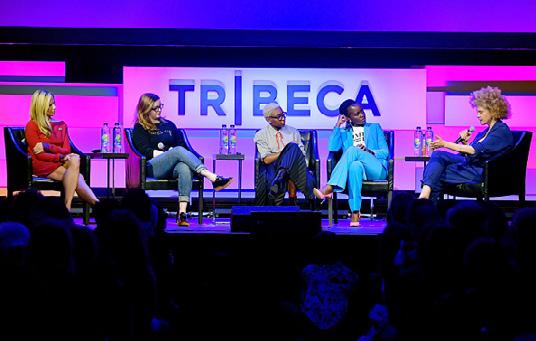
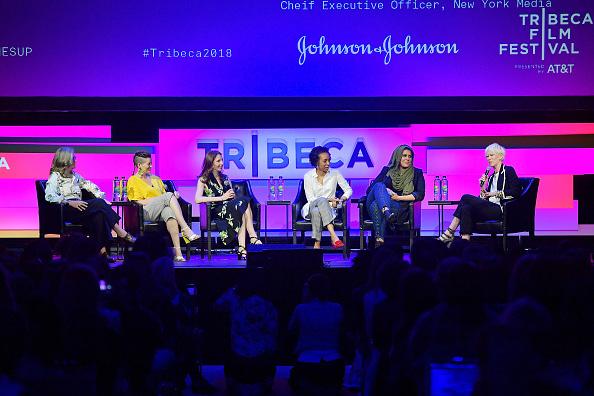
● Julianne Moore and Jurnee Smollett-Bell opened the day by introducing TIME’S UP with Moore saying that “our understanding of what’s acceptable has been skewed by what is normalized by society,” and calling for change.
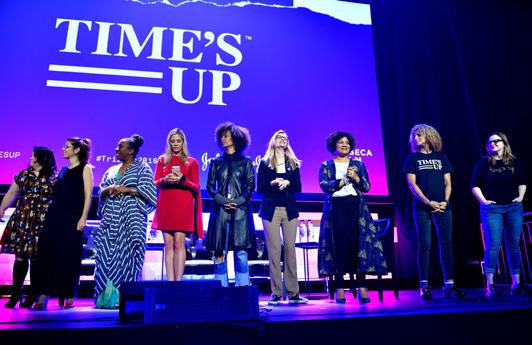
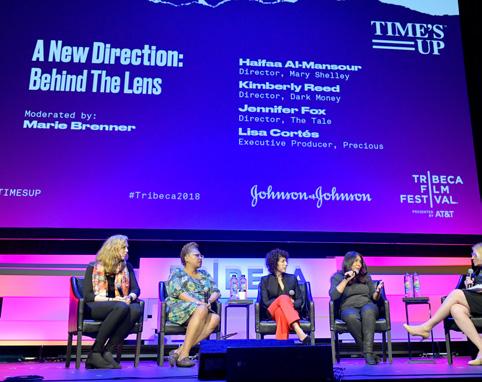
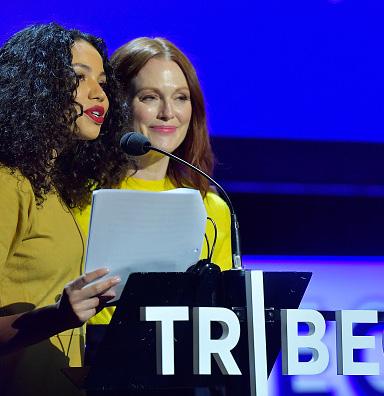
● Saru Jayaraman (co-founder of the Restaurant Opportunities Centers United) detailed the rampant sexual harassment in the restaurant industry and demanded action.
● Mónica Ramírez (Co-Founder and President, Alianza Nacional de Campesinas) with Teresa Arredondo (one of the farmworker women leaders from Lideres Campesinas) speaking about the women farm workers movement.
● Sienna Miller introduced the panel, “A New Direction: Behind the Lens” with female filmmakers, and said, “[we’re] not just wives and girlfriends in life...it’s on all of us to pave the path and help stories be told.”
● Former NFL player and advocate Wade Davis talked about the importance of starting the conversations around sexuality and sexual assault early.
● Lupita Nyong’o, Cynthia Erivo, Mira Sorvino, and Amber Tamblyn talked about the roles women are cast in, the importance of telling rich stories on screen, and the impact of portraying powerful female characters in film. Erivo said, “I’m trying to make people aware that we have a choice in the way we are perceived. see myself differently and want that to help other young ladies get the permission to also see themselves differently.”
● Marisa Tomei talked about the impact of - and introduced - the TIME’S UP Legal Defense Fund, who discussed legal wins.
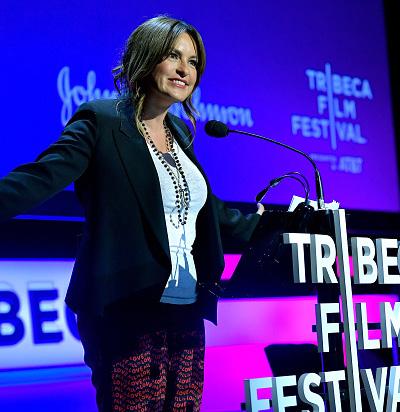
● Mariska Hargitay introduced a panel about “Activism Through the Ages” during which Robin Morgan fired up the audience and also got them laughing, saying, “the women’s movement is the most fun you can have sitting up.”
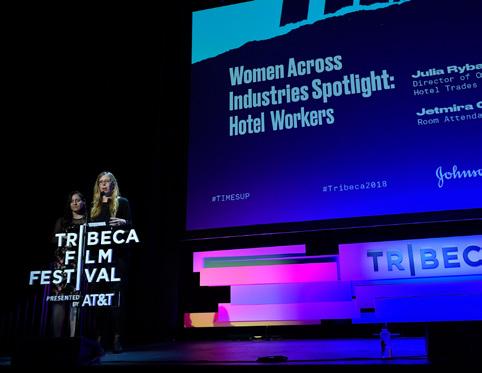
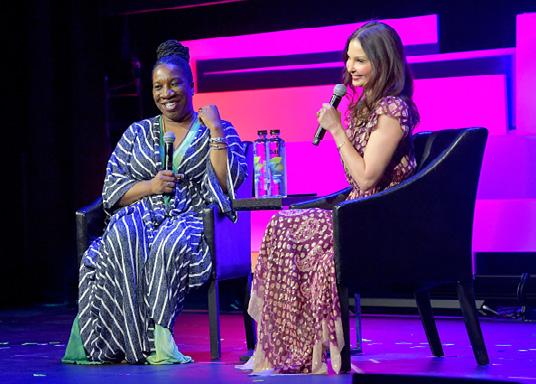
● Ashley Judd shared a personal letter about the fortitude it has taken and the personal empowerment she has experienced as a survivor.
● The event concluded with a speech from the CMO of TIME’S UP and a performance from the Resistance Revival Chorus
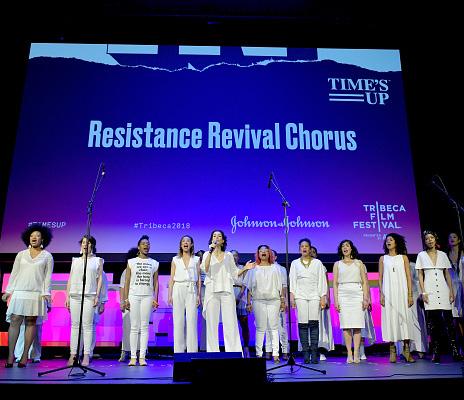
Season 8 episode 1 - Hanoi
Bourdain - “There is no better place to entertain the leader of the free world, in my opinion, than one of these classic, funky family-run noodle shops you find all over Hanoi. Dinner and a beer cost about $6. I’m guessing the president doesn’t get a lot of state dinners like this.”
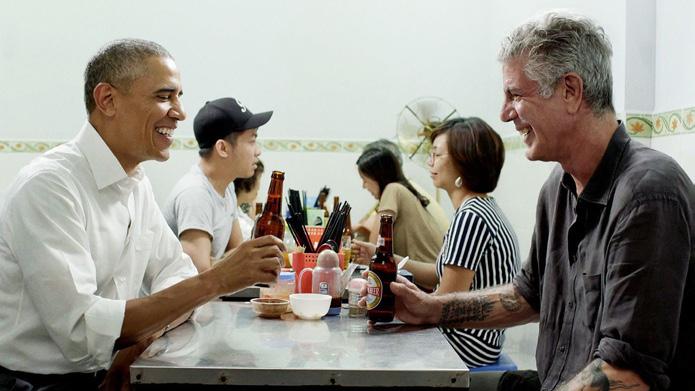
Obama on whether the world will be a better place in 5-10 years: “I think progress is not a straight line. There are going to be moments in any given part of the world where things are terrible but having said all that, I think things are gonna work out.”
The world is still reeling from the shocking news of Anthony Bourdain’s death. In many ways, Anthony was a teacher and the audience was his students. Anthony showed viewers various parts of the world most never thought to explore which is the genius of Parts Unknown. Out of the many seasons, we learned a lot about Anthony and his love of life, humanity and food. There were lots of funny moments (like Anthony pranking Eric Ripert) and poignant moments like the Jerusalem episode. We had the chance to see Anthony try the Waffle House for the first time and also eat and drink beer with President Obama in Vietnam. There are too many favorite moments we have of Parts Unknown, No Reservations, The Layover and Anthony Bourdain Explains Everything. Hopefully Netflix will not remove Parts Unknown in the next few days so we can enjoy moments a little longer. Thank you Anthony Bourdain, check out our highlights and favorite quotes and moments from Parts Unknown below.
The world is still reeling from the shocking news of Anthony Bourdain’s death. In many ways, Anthony was a teacher and the audience was his students. Anthony showed viewers various parts of the world most never thought to explore which is the genius of Parts Unknown. Out of the many seasons, we learned a lot about Anthony and his love of life, humanity and food. There were lots of funny moments (like Anthony pranking Eric Ripert) and poignant moments like the Jerusalem episode. We had the chance to see Anthony try the Waffle House for the first time and also eat and drink beer with President Obama in Vietnam. There are too many favorite moments we have of Parts Unknown, No Reservations, The Layover and Anthony Bourdain Explains Everything. Hopefully Netflix will not remove Parts Unknown in the next few days so we can enjoy moments a little longer. Thank you Anthony Bourdain, check out our highlights and favorite quotes and moments from Parts Unknown below.
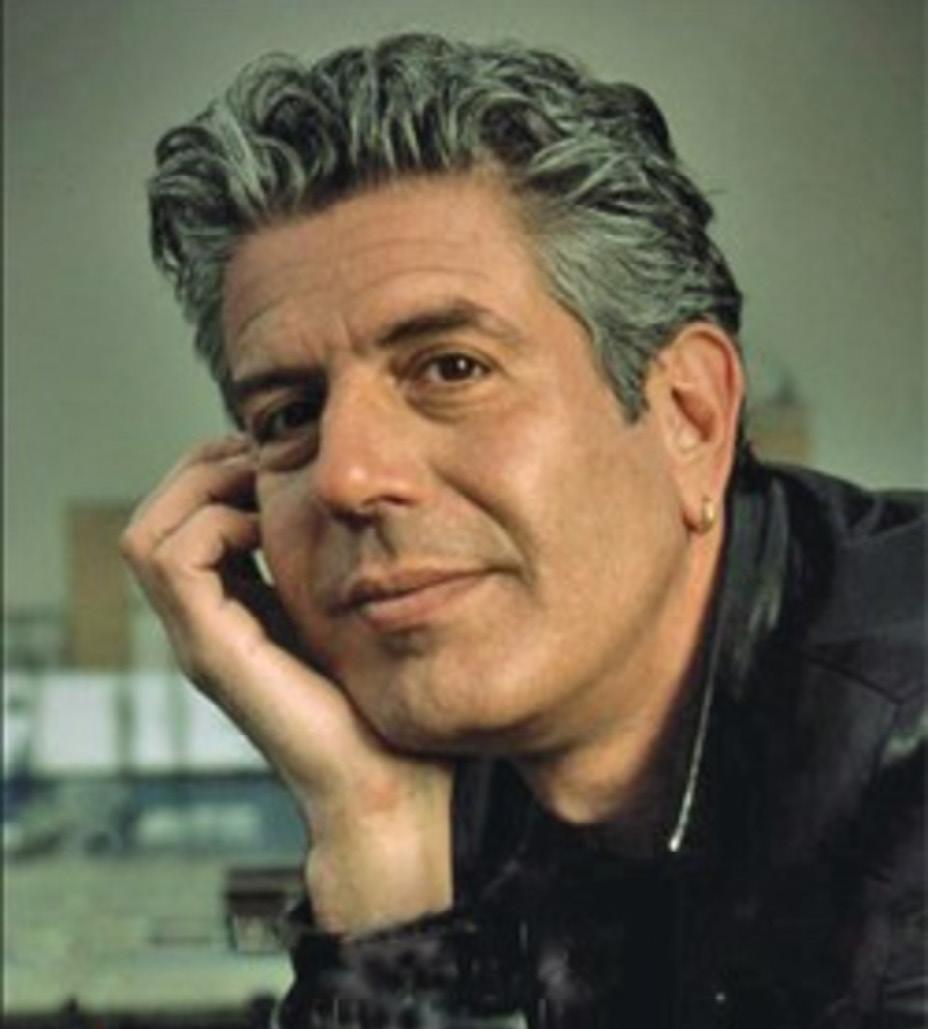

Season 2 Episode 1 - Jerusalem is one of the best hours of relevison. It humanized the crisis in Gaza and highlighted the familes over there and the daily conflict.
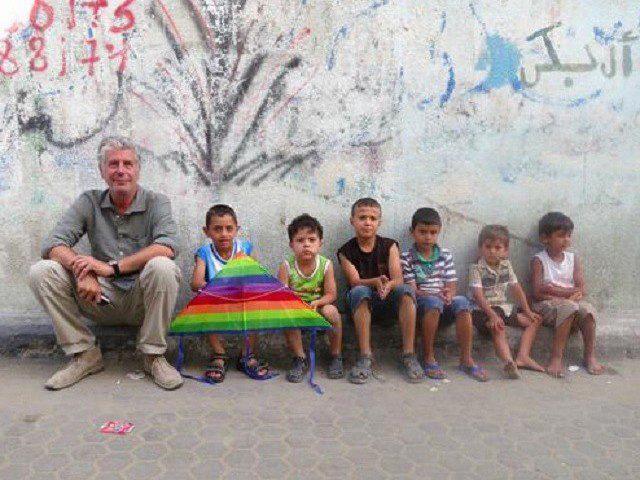
“One can be forgiven for thinking, when you see how similar they are, that two peoples, both of whom cook with pride, eat with passion, love their kids, love the land in which they live or the land they dream of returning to, who live so close, who are locked in such an intimate, if deadly, embrace, might somehow, someday, figure out how to live with each other?”
Bourdain says on the episode. “But that would be very mushy thinking. Those things, in the end, probably don’t count for much at all.”










